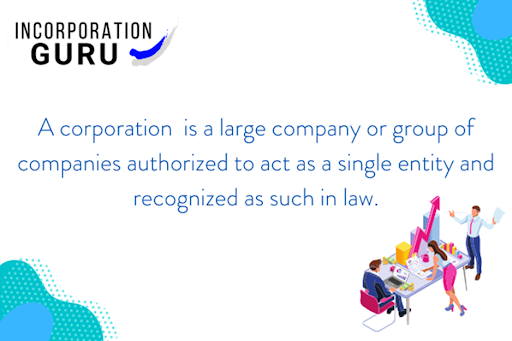According to the latest data from the Census Bureau, the United States has seen a 24 % jump in the number of Americans who have filed paperwork for starting a new business. And the number is projected to be on a steady incline this year. Starting a new venture can be challenging and comes with various choices that are critical to the success of the business.
Whether or not to incorporate is a vital question many entrepreneurs will have to ask themselves. Starting a new business can be a risky venture and one of the most important decisions is to select the right legal structure of the business, this is to ensure the correct balance of legal protections and benefits.
Incorporating VS Registering a Business
The term incorporation refers to the act of forming a new corporation. It is the process of turning a sole proprietorship or general partnership into a separate business entity that is legally recognized by the state. Incorporating a business is different from registering a business, in that when a business is registered, the state is notified of the existence of the business– so it can operate legally. When a business becomes incorporated, it creates a separate legal entity for the business.

Why is Incorporation Important for a Business?
An initial concern amongst entrepreneurs is that incorporation can be costly and complex however, neither is necessarily the case. The benefits entrepreneurs can gain by structuring their business as a corporation or limited liability company (LLC) typically outweigh any perceived disadvantages.
Unlike partnerships or sole proprietors, a corporation is a legal entity that exists separately from the individuals who created it and executes its operations.
Advantages to Incorporating Your Business
Limited Liability
Corporations offer the strongest protection to their owners from a personal liability standpoint. As a separate legal entity, a corporation is responsible for its own debts. That means creditors of a corporation generally can seek payment only from the assets of the corporation and not from the personal assets of shareholders, directors, and officers. Conversely, a sole proprietor or partnership risks unlimited liability for both business and personal assets.
Unlimited Life
Unlike proprietorships and partnerships, a corporation’s life span is not dependent upon the life of a particular individual or individuals. It can continue indefinitely until it accomplishes its objective, merges with another business, or goes bankrupt.
Transferability of Ownership
Since a corporation is a separate legal entity, owners do not own assets directly instead, they have ownership of shares in the corporation that owns the assets. This process makes transferring ownership interests and attracting investments much easier.
Instant credibility
Incorporating your business can provide an instant dose of credibility to your brand. Potential investors, lenders, suppliers, customers, and employees will immediately be able to note that you have a long-term goal of operational success.
Lower tax rates
Incorporating can potentially provide tax advantages over that of a sole proprietorship. In many cases, corporations qualify for additional tax benefits and deductions that aren’t available to individual taxpayers.
Gain Anonymity
A corporation can offer anonymity to its owners. If you want to open a business and don’t want your involvement to be public knowledge, your best choice may be to incorporate.
Overcoming Disadvantages of Incorporating Your Business
There is a measure of complexity involved when incorporating your business. There are rigid formalities, record keeping, and protocols to follow. For example, in addition to your personal tax return, the corporation will need to file a tax return and there are other annual filings that will be required. However, these can easily be mitigated by utilizing a reputable Incorporation service. For more information, Incorporation Guru provides insightful LegalZoom and Zen Business reviews– amongst other top Incorporation service providers.
Final Thoughts
Is it a good idea to incorporate your business? Technically, a small business may remain in its default entity as a sole proprietorship. However, most ambitious entrepreneurs realize that corporations have many long-term benefits. eBay is a very famous example of a sole proprietorship that eventually converted into a corporation. Apple started as a partnership and was incorporated soon after the company began its operations.
When you incorporate your business, you receive limited liability protection. Tax responsibilities may be lessened when electing a pass-through entity. It is easier to build business credit, establish credibility with consumers, and it allows the company to develop a strong brand reputation. However, corporations are also subject to strict reporting and compliance regulations and are ultimately owned by their shareholders.
As an entrepreneur, it’s important to understand all the nuances involved and choose the right structure for your company. When it comes to launching a new business, knowledge is power.

